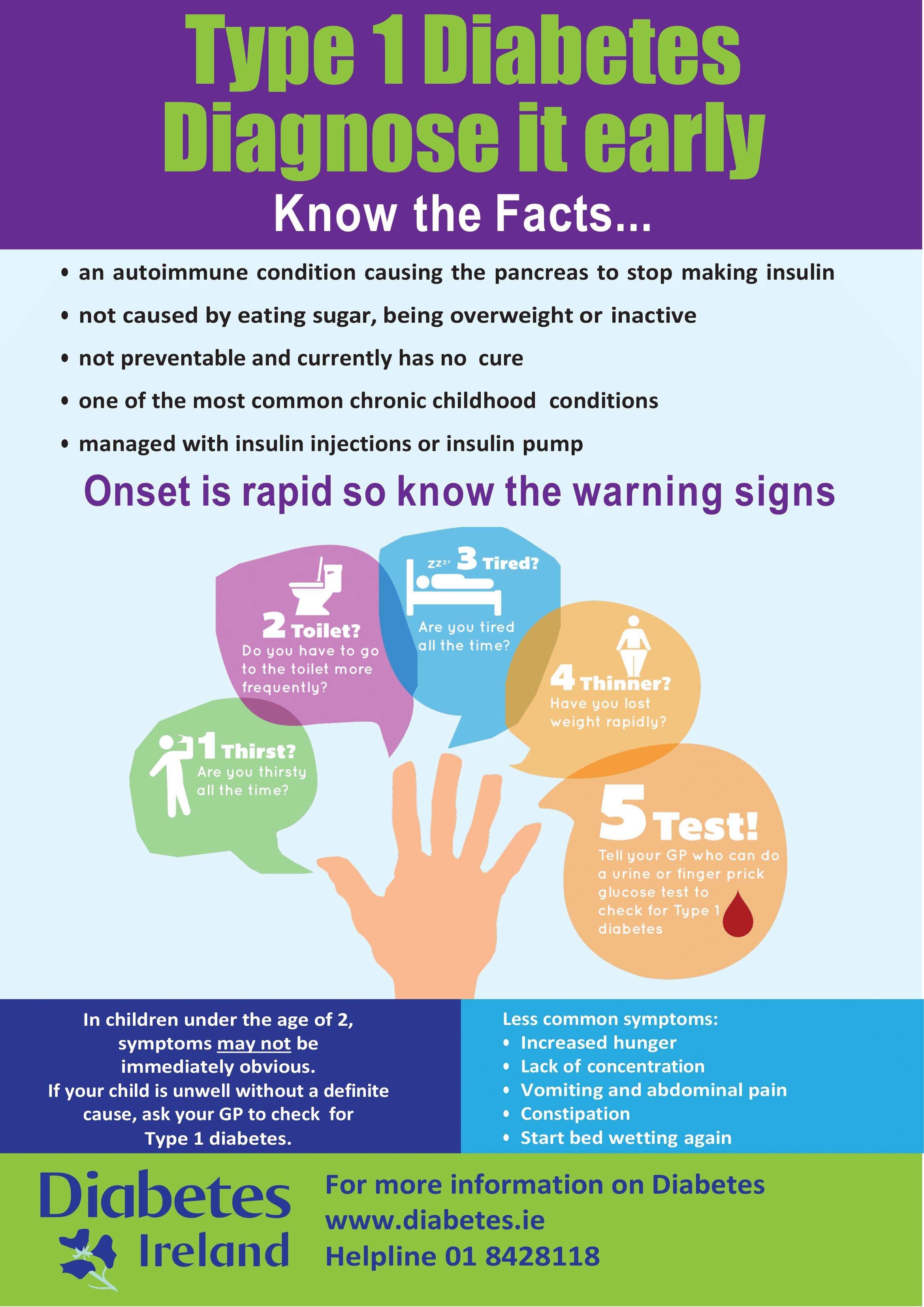Type 1 Diabetes
Up to 5 Irish children and teenagers are diagnosed each week with Type 1 diabetes. Type 1 diabetes is an autoimmune condition affecting 1 in 500 children with its onset over days or weeks. The condition tends to occur in childhood or early adult life and its management will require daily insulin therapy for life. It is caused by the body’s own immune system destroying the insulin-making cells (beta-cells) of the pancreas. It is not preventable, or lifestyle-related.
Diagnosis
A simple finger-prick blood test by a GP can detect Type 1 diabetes and avoid the risk of critical illness that can come with a delayed diagnosis.
Signs and Symptoms
Knowing the symptoms of Type 1 diabetes is vital. Up to five children and teenagers are diagnosed each week with Type 1 diabetes in Ireland with 10% having a late diagnosis resulting in critical illness.
The four main symptoms of Type 1 diabetes are easy to remember:
- Thirst: Excess drinking, unable to quench thirst.
- Toilet: Frequent urination, particularly at night.
- Tiredness: Lack of energy, sleeping more than usual.
- Weight loss: Rapid weight loss over a short period.
If these symptoms present themselves, immediate attention is needed. A simple blood glucose (finger prick) test by your GP can check for Type 1 diabetes.
Less common symptoms:
- Lack of concentration
- Vomiting and abdominal pain
- Constipation
- Bedwetting
- Mood swings
- Frequent infections
- Itchy skin infections
In children under the age of two, symptoms may not be immediately obvious.
If your child is unwell without a definite cause, ask your GP to check for Type 1 diabetes.
Type 1 Diabetes Management
Type 1 diabetes is managed by replacing the body's insulin with insulin injections or by using an insulin pump. It is also necessary for a person with Type 1 diabetes to frequently monitor their blood glucose readings (several times a day). In order to keep blood glucose levels within a normal range a person with Diabetes needs to balance insulin doses with food intake and levels of physical activity to ensure they feel well on a daily basis and to protect their long-term health. Type 1 diabetes is a manageable condition with support from the diabetes team in the hospital.
How can your Pharmacist help?
Pharmacists play an important role in the care and support of people diagnosed with diabetes. Your Pharmacist is the most accessible healthcare professional and is readily available to:
- Monitor Blood glucose levels,
- Answer questions about diabetes and related health conditions.
- Offer guidance on the proper use of medications and other supplies used to treat diabetes.
- Reduce the risk of complications through early detection of diabetes and by contributing to the management of the risk factors for complications.
Ask your local CarePlus Pharmacist for help and advice in managing your Diabetes
There is a lot of support available from Diabetes Ireland, see www.diabetes.ie or telephone 01-842 8118.
Information from Diabetes Ireland



